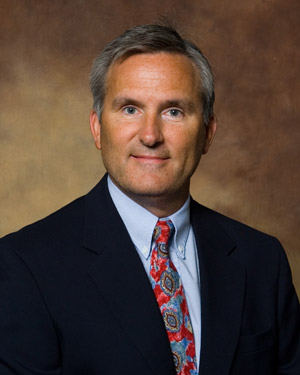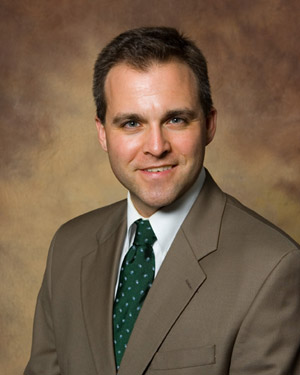Search Posts


| sun | mon | tue | wed | thu | fri | sat |
| 1 | 2 | 3 | 4 | 5 | ||
| 6 | 7 | 8 | 9 | 10 | 11 | 12 |
| 13 | 14 | 15 | 16 | 17 | 18 | 19 |
| 20 | 21 | 22 | 23 | 24 | 25 | 26 |
| 27 | 28 | 29 | 30 | 31 |
Recent Posts


 You have heard the ads for low libido, commercials guaranteeing to boost your Testosterone. Low T Men's Clinics are business models, not primary care services. So what is it they are not telling you? To understand this one needs to review how the primary male hormone Testosterone is regulated in the body. Most men understand the source of Testosterone is from the testicles, which also are responsible for sperm production. But most people do not know that the regulation of Testosterone is under the influence of the pituitary gland in the brain. Much like a thermostat type of control, when Testosterone goes up the pituitary feedback will decrease testicular production.
You have heard the ads for low libido, commercials guaranteeing to boost your Testosterone. Low T Men's Clinics are business models, not primary care services. So what is it they are not telling you? To understand this one needs to review how the primary male hormone Testosterone is regulated in the body. Most men understand the source of Testosterone is from the testicles, which also are responsible for sperm production. But most people do not know that the regulation of Testosterone is under the influence of the pituitary gland in the brain. Much like a thermostat type of control, when Testosterone goes up the pituitary feedback will decrease testicular production.
So when the Men's Clinic gives you Testosterone replacement your pituitary gland will tell the testicles to stop making it. Would you rather have 280 of your own Testosterone or 300 artificial replacement?
Furthermore consider you are now dependent on a product because your testicles will shut down this natural production not only of Testosterone but also sperm. One can become infertile from Testosterone replacement. Sometimes a true low Testosterone patient (Hypogonadism) needs replacement therapy. But careful consideration and thoughtful consultation should go into "supplementing a low normal Testosterone" level, because it is not a supplement, it is a replacement of your normal hormone for the drug product.


.jpg) In the previous blog we discussed how the severe pain from a kidney stone attack is the body's way of telling us that our kidney is blocked. This causes one to seek help before the kidney suffers any permanent damage, which can happen when a kidney becomes obstructed.
In the previous blog we discussed how the severe pain from a kidney stone attack is the body's way of telling us that our kidney is blocked. This causes one to seek help before the kidney suffers any permanent damage, which can happen when a kidney becomes obstructed.
The obvious and first efforts to manage renal colic comes in the choice and dose of analgesics (pain medication) and antiemetic for the nausea and vomiting part of the illness. Often the patient can be supported with these measures and IV fluids while the stone passes. A group of medications called alpha blockers (Flomax is the best known) can help stones to pass.
If this strategy does not work or if the stone is obviously too large, Middle Tennessee Urology Specialists has a number of minimally invasive procedures such as Ureteroscopy and ESWL (Lithotripsy) to remove these stones. Such a remedy can often be employed within hours of the horrible first symptoms, curing the illness that day.
Shock wave lithotripsy technology was truly a game changer. Even the doctors were skeptical that a device had been designed to break up stones without any incision or direct scope contact. But now we have over 30 years of success with ESWL and patients usually are home in a few hours after treatment.



One patient explained his agony this way, "It was so bad, I was afraid I was going to live!"
Often described as "the worst pain in my life", the severe pain from kidney stones, called renal or ureteral colic, occurs when a stone passes from the kidney into the ureter. The ureter is the thin tube, 10-12 inches long, that transports urine from the kidney to the bladder. Very small stones may pass without any pain or notice. But stones above 1-2 mm in size often get stuck.
When the normal flow of urine cannot get past the stone, pressure builds up in the ureter. As this hollow thin tube distends nerves begin to fire. It is not safe for a kidney to become blocked. Stretch receptors send bursts of information to the brain and one can become violently ill with severe flank pain that radiates to the groin area along with nausea, vomiting, and sweating.
Unfortunately Middle Tennessee is also in the middle of the so called "stone belt". Fortunately, Middle Tennessee Urology Specialists have careers of knowledge and skill to help manage and cure these painful experiences. More on that in the next blog.


.jpg) More smokers will get bladder cancer than lung cancer. Think about that for a moment. All those toxins that are inhaled into the lung, filtered into the blood stream, then removed by the kidneys. Those toxins are dumped into the urine which sits in the bladder. What else are the toxins to do, but to sit there in the bladder and do what they do best: cause cancer.
More smokers will get bladder cancer than lung cancer. Think about that for a moment. All those toxins that are inhaled into the lung, filtered into the blood stream, then removed by the kidneys. Those toxins are dumped into the urine which sits in the bladder. What else are the toxins to do, but to sit there in the bladder and do what they do best: cause cancer.
Bladder cancer is treatable as long as its found early. If its found early enough, chemotherapy and cystectomy (complete removal of the bladder) can be avoided. But even if the cancer is limited to the bladder, routine surveillance with cystoscopy or the use of agents in the bladder are required to prevent recurrence or progression of the cancer.
If smokers stop smoking, the risk of bladder cancer is reduced by 40% after just 4 years. Its virtually back to the rate of non-smokers in 20 years. Patient with bladder cancer who do not stop, have an increased risk of bladder recurrence.
That's why a urologist will tell you to stop smoking.
Not to mention, smoking is a significant risk factor for erectile dysfunction in men (that should be enough to cause men to stop smoking right there). Smoking is a risk factor for kidney cancer. And its a risk for pulmonary, cardiac, and wound complications related to other surgeries. In fact, women with stress urinary incontinence are encouraged to stop smoking to reduce the risk of incontinence with sling surgery.
There are a lot of options for smoking cessation from quitting cold turkey, to medications, and hypnosis. Make a resolution to stop smoking today. Or, as we like to say, to never start smoking again.


.jpg) Blood in the urine needs to be taken very seriously.
Blood in the urine needs to be taken very seriously.
Sometimes blood in the urine signifies cancer, other times its "normal", and then there are times when blood in the urine can lead to retention. If you are not sure, please see us or your primary physician for evaluation.
A drop of blood in a bucket of urine can turn it red. Cherry colored urine is not too concerning in the emergency sense, while thick Ketchup-like urine or urine with large blood clots can lead to urinary retention. If the urine is that bloody, a catheter usually needs to be inserted to irrigate out the blood. Sometimes this can be done in the office or ER, but a lot of the time, requires hospitalization for continuous irrigation or even a trip to the operating room.
Blood in the urine, whether found on routine urinalysis (microscopic) or visualized in the toilet (gross hematuria), can be a sign of bladder or kidney cancer. In smokers, this is particularly a concern as bladder cancer is even more common than lung cancers. Often a CT scan and office cystoscopy is recommended and can be performed in our office - this is quick and easy to schedule. Cystoscopy is where a flexible telescope is inserted through the urethra to look at the bladder lining directly.
At other times, blood in the urine is not unusual. Kidney stones and UTI's are some of the more common reasons this can occur. One of the most common reasons in men, is an enlarged prostate which can bleed very easily. The key in deciding whether to be worried about gross blood in the urine is whether there is pain involved.
Microscopic hematuria is less worrisome, but does need to be taken seriously as well. In any case, Middle TN Urology Specialists can help.


 Most tumors, or masses, of the kidney are discovered incidentally. This means that most patients do not have any pain, blood in the urine, or other symptoms that lead to the diagnosis. In this day and age when CTs, MRIs, and ultrasounds are common, the kidneys are often imaged while a non-related complaint ("my stomach hurts") is being evaluated. This is good news because most kidney cancers are discovered at a very treatable and curable stage.
Most tumors, or masses, of the kidney are discovered incidentally. This means that most patients do not have any pain, blood in the urine, or other symptoms that lead to the diagnosis. In this day and age when CTs, MRIs, and ultrasounds are common, the kidneys are often imaged while a non-related complaint ("my stomach hurts") is being evaluated. This is good news because most kidney cancers are discovered at a very treatable and curable stage.
And what is the typical treatment? Observation or surgery. Radiation therapy is not recommended because it does not work. Chemotherapy is reserved for cases where the cancer has spread beyond the kidney. Observation is indicated for small renal masses that can be safely watched, especially in patients with medical co-morbidities that make surgery more risky.
The size and location of the mass is taken into consideration with surgery. For large masses, the entire kidney is typically removed (nephrectomy). A large incision is required for the largest of these masses, though typically laparoscopic approach is better.
For smaller masses, partial nephrectomy is preferred. This requires clamping the main artery to the kidney to excise the portion of the kidney with the mass and probably requires more skill than any other urological surgery. However, the benefit is that its as effective for treating kidney cancers and removing the entire kidney with the added benefit of preserving more functioning kidney tissue to prevent kidney failure.
Cryoablation or "freezing" or radiofrequency or "microwaving" of small renal masses can also be performed in select cases.
Since 2002, Dr. Showalter, along with Dr. Jackson and Dr. Stewart have brought the latest and greatest training and skill in providing these procedures.


 Middle TN Urological Specialist provide 24-hour coverage for St. Thomas Rutherford Hospital. What this means is that the Emergency Departments are able to call us for consults and admission and treatment of patients with kidney stones, urinary retention, and other urological emergencies. This also means that we are available to assist with specific patient concerns - especially whether someone needs to go to the emergency room for evaluation. However, we do not want to be called for non-urological concerns and medication refills which can be addressed during regular office hours.
Middle TN Urological Specialist provide 24-hour coverage for St. Thomas Rutherford Hospital. What this means is that the Emergency Departments are able to call us for consults and admission and treatment of patients with kidney stones, urinary retention, and other urological emergencies. This also means that we are available to assist with specific patient concerns - especially whether someone needs to go to the emergency room for evaluation. However, we do not want to be called for non-urological concerns and medication refills which can be addressed during regular office hours.
The emergencies that generate the most phone calls have to do with kidney stones. The typical symptoms include sudden onset pain in the "flank" or back area over the kidney and is typically very sharp. The pain is severe, typically scored as an "11" on a 1 to 10 scale, and typically associated with nausea and vomiting and urinary symptoms such as frequency, urgency, and hesitancy. There can also be gross blood in the urine. By law narcotics can not be called in to the pharmacy, and the quickest route to relief is to go the the ER.
The emergency department can help diagnosis by ordering a CT scan, which is the best test, and the one we typically do in the office setting. However, plain X-rays and ultrasound can also be used for diagnosis. If the pain is controlled, the ER will try to get patients home to try to pass the stone. If the pain is uncontrollable or the stone is too big to pass, then admission to hospital or surgery can be considered.
We are proud to offer efficient surgical treatment at either hospital with ureteroscopic treatments which often require the use of a laser and a stent. Shock Wave Lithotripsy is available at Saint Thomas Rutherford Hospital Monday through Friday which is a great luxury for the appropriate selected stones. Whatever the case may be, treatments are individualized based on a number of parameters.


Middle Tennessee Urology Specialists was formed in 2007 by combining the experience and expertise of 5 urologists for the purpose of providing excellent urological care to Murfreesboro and surrounding areas including Smyrna and Manchester. Each of us brings a unique perspective to our practice.

Dr. Robert Cleveland started his urological practice in Winchester, TN many years ago before joining the Middle Tennessee Urology Specialists, and still sees a large number of patients from that area.

Dr. Robert Dray completed his urology training at Vanderbilt before starting his solo practice in 1984. He has a special interest in pediatric urology and is interested in taking care of children from newborn on up. He left a solo practice to "leave urological care in Murfreesboro better than when he arrived."

Dr. Theodore Shepard is the only fellowship trained urologist in Rutherford County. He completed a fellowship in endourology and has performed the vast number of percutaneous nephrostolithomoties for the treatment of large kidney stones, and takes care of a large number of stone patients.

Dr. Patrick Showalter brought laparoscopic skills to the community and became the first to perform laparoscopic radical nephrectomy, radiofrequency ablations, laparoscopic adrenalectomy, and laparoscopic renal cyst decortication.

Dr. Chad Jackson was the first to perform laparoscopic prostatectomy, and with Dr. Showalter, has performed more than 350 robotic radical prostatectomies, partial nephrectomies, and pyeloplasties.

Dr. Greg Stewart joined us in 2014 and brings the latest and best knowledge that urological training has to offer.
As a practice, we are dedicated to providing as many in-office services as possible so as much can be done to save health care dollars and precious time. For instance, CT scans and ultrasounds can be done as part of an office visit rather than using an imaging center. In office cystoscopy saves facility and anesthesia fees. When necessary, however, anesthesia can be arranged for certain invasive procedures. Vasectomies, urodynamics, and microwave therapy are other routine office procedures we provide.
Whatever the urological needs are, we work closely with referring physicians, and other providers and strive to communicate our care. We also work closely with other specialists, especially radiation and medical oncologists, gynecologists, and radiologists.
As our practice has grown, we have recognized the need to work out of StoneCrest Medical Center and St. Thomas Rutherford Hospital for emergency, in-patient, and surgical care. We have opened a satellite office in Manchester and Smyrna in addition to our original Murfreesboro location. We look forward to seeing you in our practice.



